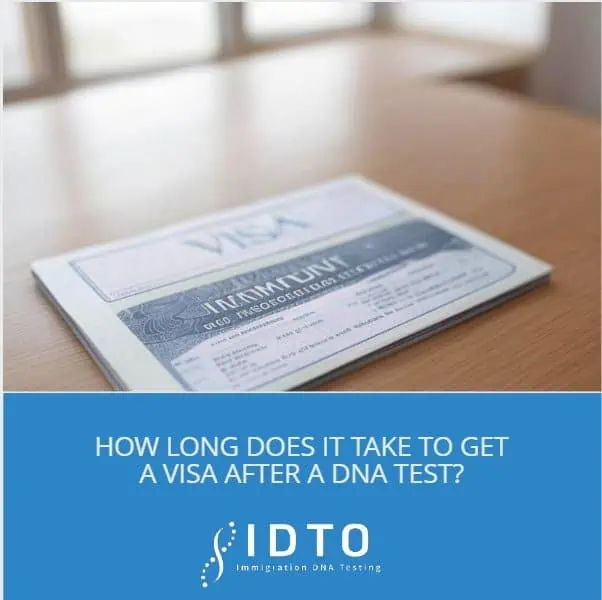Many families applying for immigrant visas, Consular Report of Birth Abroad (CRBA), and passports are often concerned about the processing time after submitting DNA evidence to USCIS or a U.S. embassy. In this post, we will discuss the estimated turnaround times for receiving a visa.

How long does it take to get a visa after DNA results?
After the completion of your DNA testing, the laboratory will send your results to the requesting office of the United States Citizenship and Immigration Services (USCIS) or the requesting U.S. embassy. The time it takes for an immigration office to process these results can vary based on its current workload. Before the COVID-19 pandemic, the average turnaround time was typically between 30 to 90 days for USCIS.
Since the onset of COVID-19, processing times have been less predictable, with our experience indicating an average range of 45 to 120 days for different families we have assisted.
U.S. Embassy
Please note that visa acceptance response times by embassies tend to be quicker than those by USCIS, averaging around 30 to 90 days. However, these timeframes can vary significantly from one country to another.
Keep in mind that these are average estimates and actual processing times may vary.
Key Factors to Consider for Visa Approval
The type of visa you apply for, whether it’s an immigrant or non-immigrant visa, will influence the duration and likelihood of approval.
Non-immigrant Visas: The criteria for applying for this type of visa are generally less stringent. These visas are intended for temporary stays in the country, such as for tourism, business, or short-term work.
Immigrant Visas: The application process for immigrant visas, which allow for permanent residency, involves much stricter and more complex criteria.
Remember, you must adhere to USCIS and U.S. embassy legal guidelines to avoid delays or case denials.
Documentation: Proper documentation is crucial for visa approval. Failing to provide the necessary documents such as (medical history, proof of relationship, bank statements, travel history, religious documents and affidavits), can significantly impede your application. In cases where evidence is deemed insufficient, immigration officers may suggest DNA testing to verify familial relationships. While DNA testing is not mandatory and does not ensure visa approval, it can substantively strengthen your case if it confirms a biological relationship.
Interview: The visa interview is a critical component of the application process. The outcome can hinge on how well applicants handle the interview. Therefore, thorough preparation for visa interviews is essential. It may be beneficial to consult with an immigration attorney specializing in family law to set expectations and prepare for the interview.
In conclusion, preparation is a key factor that influences both the processing time and the likelihood of receiving visa approval.

